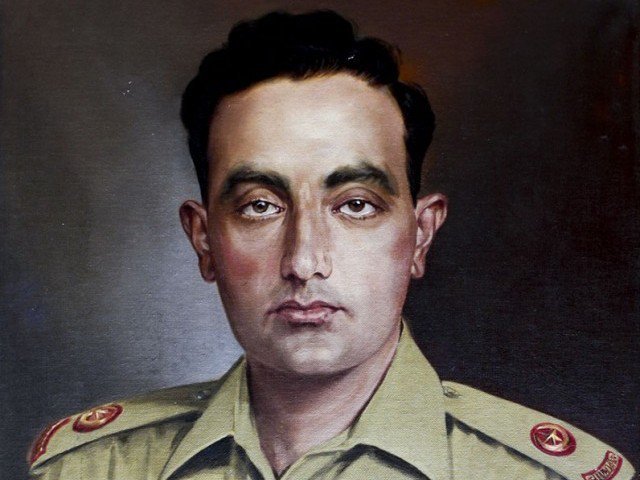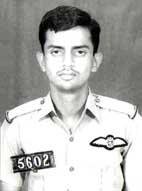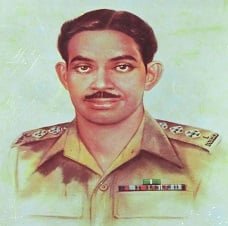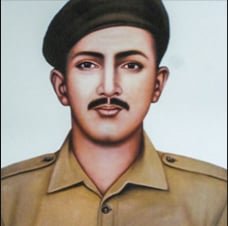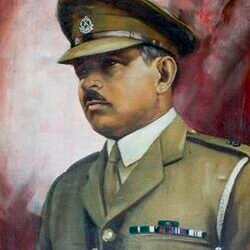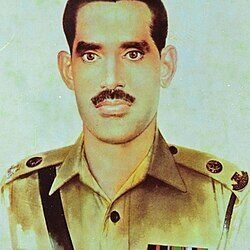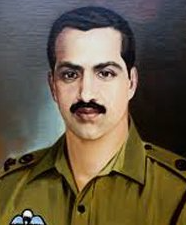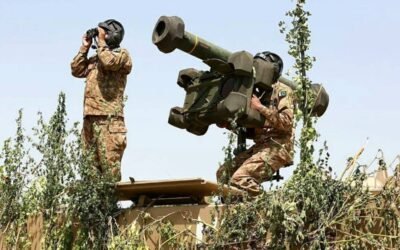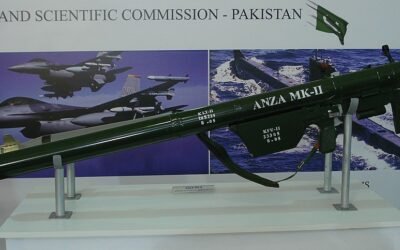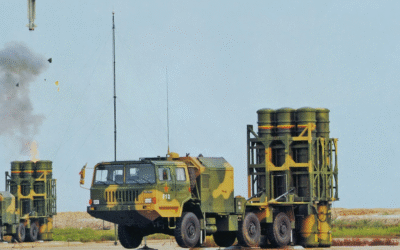Major Raja Aziz Bhatti stands as an eternal symbol of unyielding resolve and valor, earning him the prestigious title of the “Defender of Lahore” during the 1965 Indo-Pakistani War. Born on August 6, 1928, in Hong Kong, he was the son of a school teacher. His early life was spent in the then-British colony before his family returned to their ancestral home in Ladian, Gujrat District, in 1947. This move coincided with the birth of Pakistan, and young Aziz Bhatti, deeply inspired by the new nation, felt a powerful call to service. He joined the Pakistan Army in 1948 and, after completing his training at the Pakistan Military Academy, was commissioned into the 17th Punjab Regiment in 1950. His dedication and strategic mind quickly set him apart from his peers.
In September 1965, the Indo-Pakistani War erupted, and Major Aziz Bhatti was a company commander in the Burki sector near Lahore. His unit was deployed at a crucial forward observation post on the Bambawali-Ravi-Bedian (BRB) Canal, a vital defensive line that protected the city of Lahore. On September 6, 1965, Indian forces launched a major offensive with overwhelming numbers and armored support, aiming to breach the canal and advance on Lahore. The initial hours of the battle were chaotic, with heavy tank and artillery fire raining down on the Pakistani positions.
Recognizing the gravity of the situation, Major Bhatti took a daring decision. He refused to be relieved from his post, insisting on staying at the very front to personally command his men and observe enemy movements. For five consecutive days and nights, from September 6 to September 10, he remained at his post, an open target for enemy fire. He ignored the incessant shelling and refused to seek shelter, a choice that his comrades found both alarming and deeply inspiring. His presence at the front line served as a powerful morale booster for his troops, who, under his guidance, repelled wave after wave of Indian attacks. He skillfully directed artillery fire, precisely targeting enemy tanks and infantry advances, and thwarted numerous attempts to cross the canal. His exceptional leadership and composure under immense pressure were key to holding the line.
On September 12, while he was observing enemy positions and directing his men, he was hit by a shell from an Indian tank. He succumbed to his wounds instantly, embracing martyrdom at the post he had so valiantly defended. His unwavering resolve and a refusal to abandon his duty, even when death was imminent, secured the safety of his sector and, by extension, the city of Lahore.
For his unparalleled courage and ultimate sacrifice, Major Raja Aziz Bhatti was posthumously awarded the Nishan-e-Haider, the third individual to receive this honor. His heroic stand became a legend, a timeless story of a soldier who gave everything to protect his homeland. His actions at the BRB Canal are a powerful symbol of the Pakistan Army’s commitment to defending the nation’s integrity. To this day, his story is taught in military academies and celebrated across the country, ensuring that the legacy of the “Defender of Lahore” continues to inspire generations.

